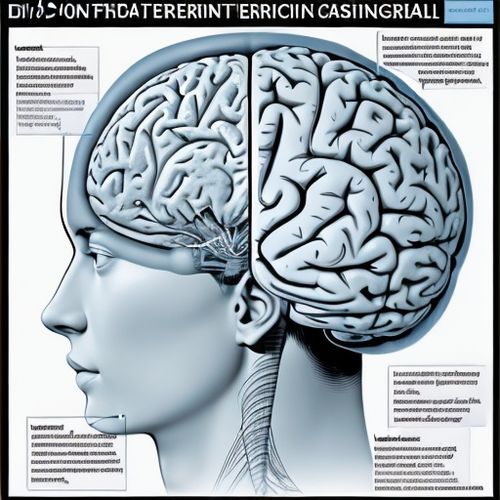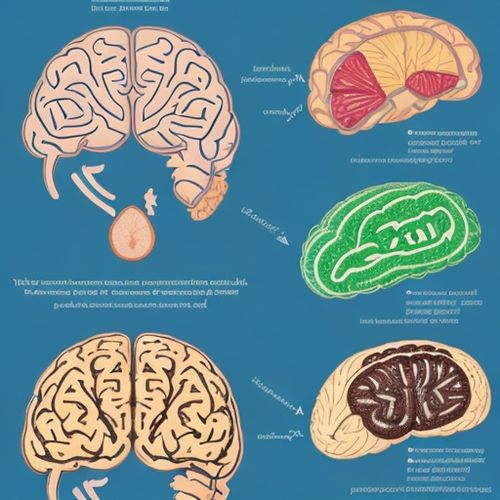In recent years, the detrimental effects of high-fat, high-sugar (HFHS) diets on physical health have become widely recognized. However, emerging research suggests that these diets may also have significant negative impacts on brain function and cognitive abilities.
The Link Between Diet and Cognitive Decline
A groundbreaking study conducted by the University of Sydney and published in the *International Journal of Obesity* has shed new light on the relationship between HFHS diets and cognitive function.The research focused on spatial navigation, a cognitive ability that relies heavily on the hippocampus—a brain structure crucial for memory formation and spatial awareness.
The study involved 55 university students aged between 18 and 38. Participants were asked to complete questionnaires detailing their intake of sugary and fatty foods, and their working memory was tested through a number recall exercise. The core experiment required participants to navigate a virtual reality maze and locate a treasure chest six times, using landmarks to remember their route. In the final trial, the treasure chest was removed, and participants had to rely solely on their memory to mark its former location.
The results were striking. Participants who consumed HFHS diets multiple times a week were significantly less accurate in pinpointing the treasure chest's location compared to those with lower fat and sugar intake. This suggests that HFHS diets may impair spatial memory and navigation abilities, which are key indicators of hippocampal health.
Biological Mechanisms at Play
The negative impact of HFHS diets on cognitive function is likely due to several underlying mechanisms. One primary factor is inflammation. HFHS diets can trigger systemic inflammation, which may extend to the brain and disrupt normal neuronal function. Inflammation can impair the communication between brain cells, leading to cognitive deficits.
Another critical mechanism involves insulin resistance. HFHS diets are known to induce insulin resistance, a condition where cells fail to respond properly to insulin. Insulin resistance has been linked to reduced brain-derived neurotrophic factor (BDNF) levels, which are essential for maintaining healthy brain function and supporting memory.
Moreover, oxidative stress is another potential contributor. HFHS diets can increase the production of reactive oxygen species (ROS), which can damage brain cells and impair cognitive function.
Reversibility and the Importance of Healthy Eating
The good news is that the negative effects of HFHS diets on brain function appear to be reversible. Dr. Dominic Tran, the lead researcher of the University of Sydney study, emphasized that dietary changes can significantly improve hippocampal health and, consequently, cognitive abilities.
Adopting a balanced diet rich in fruits, vegetables, whole grains, and healthy fats (such as those found in nuts and olive oil) can support brain health and enhance cognitive function. These foods provide essential nutrients and antioxidants that can counteract inflammation and oxidative stress, promoting overall brain well-being.
Practical Steps for a Healthier Brain
To protect and enhance brain function, it is crucial to make informed dietary choices. Here are some practical steps:
1. Reduce Intake of Processed Foods: Limit the consumption of foods high in refined sugars and saturated fats, such as fast food, sugary snacks, and soft drinks.
2. Increase Fruit and Vegetable Intake: Aim for a variety of colorful fruits and vegetables, which are rich in antioxidants and essential nutrients.
3. Incorporate Whole Grains: Choose whole grains like brown rice, quinoa, and whole wheat bread over refined grains.
4. Add Healthy Fats: Include sources of healthy fats, such as avocados, nuts, seeds, and olive oil, which support brain health.
5. Stay Hydrated: Drink plenty of water to maintain optimal brain function.
The latest research from the University of Sydney highlights the significant impact of HFHS diets on brain function, particularly spatial navigation and memory。While the mechanisms behind this impact are complex, involving inflammation, insulin resistance, and oxidative stress, the good news is that these effects can be reversed through dietary changes.
By making healthier food choices, individuals can support their brain health and cognitive abilities, reducing the risk of cognitive decline and related diseases. In a world where HFHS diets are prevalent, it is essential to prioritize nutrition not only for physical health but also for the well-being of our brains.
As Dr. Tran aptly put it, "What you eat matters for your brain." Choosing a balanced diet rich in essential nutrients can protect your memory, improve your thinking, and keep your brain strong.

By Lily Simpson/Apr 23, 2025

By Lily Simpson/Apr 23, 2025

By George Bailey/Apr 23, 2025

By Ryan Martin/Apr 23, 2025

By David Anderson/Apr 23, 2025

By Victoria Gonzalez/Apr 23, 2025

By Benjamin Evans/Apr 23, 2025

By Christopher Harris/Apr 23, 2025

By Olivia Reed/Apr 23, 2025

By Emma Thompson/Apr 23, 2025

By John Smith/Apr 23, 2025

By Emily Johnson/Apr 22, 2025

By Samuel Cooper/Apr 22, 2025

By Olivia Reed/Apr 22, 2025

By Sophia Lewis/Apr 22, 2025